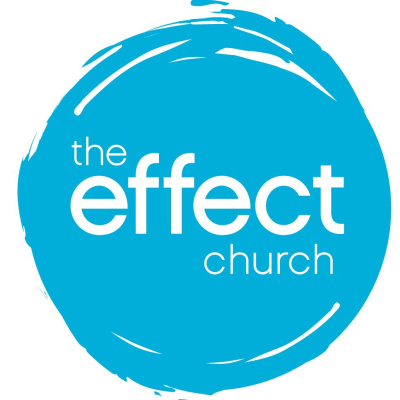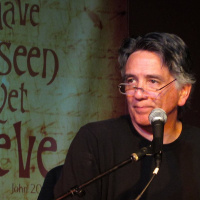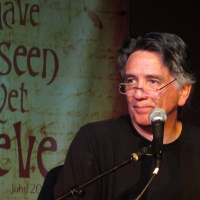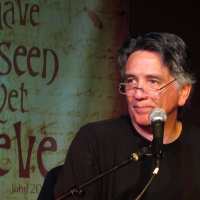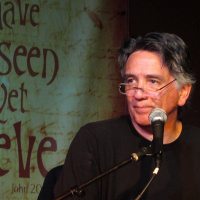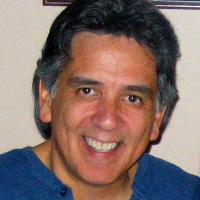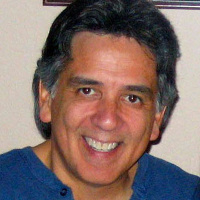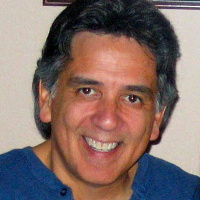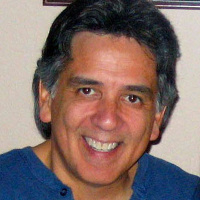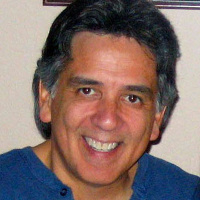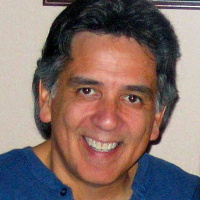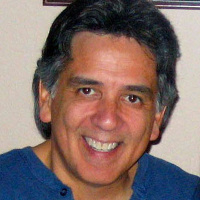Sinopsis
Audio podcasts delivered at theeffect church in San Clemente, CA. theeffect is a community of imperfect people working together to find the emotional recovery and spiritual transformation that is theeffect of Gods love by unlearning limiting perceptions, beliefs, and compulsions, and engaging a first century Jesus in a non-religious and transforming way. See more at theeffect.org.
Episodios
-
Full Circle
02/01/2016 Duración: 46minDave Brisbin | 1.3.16 James Series 3: Coming back to the book of James after Christmas and the start of a new year, we are reminded that time, all we know of time, the passage of time, is circular. The only reason we know time is passing is because earth and moon, planets and stars turn in their circles. The movement of circles is the movement of time. Life is circular too—circles within circles, and James’ book, taking us on a journey to define life on Jesus’ Way moves in circles as well. His topics don’t neatly lay out along a straight logical line, but recur in circular patterns. At first glance, it seems chaotic and disordered, but as a metaphor for life, it makes perfect sense. Starting with the initial theme of endurance, the acceptance of life on life’s terms, he moves on to wisdom and faith and then patience: the waiting for completion as a gardener waits for rain and soil to do its work, once all the work he can do is done. The serenity of this kind of patience, rooted in the endurance, acceptance, a
-
No Room At The Inn
26/12/2015 Duración: 36minDave Brisbin | 12.27.15 As Christmas moves into the rearview, there is one more look we should give the birth narratives to see what they may have for us herenow. It’s always the tiny details of a story that give it its authenticity, show that the storyteller was fully present to the moments described. And in Jesus’ birth narratives we have some details that shouldn’t be missed: wrapped in cloths, lying in a manger, no room at the inn. These details have graced millions of nativity scenes for two millennia, but do we have them right? What do the swaddling clothes and manger tell us about our God that we can use to experience him right herenow? And was there really an inn in the way we think of an inn? And if not, what would a more accurate translation tell us about Jesus’ family and our families and character and nature of those, like the Magi, who see through the details to the God they travel so far to worship.
-
The Star Of Bethlehem
12/12/2015 Duración: 41minDave Brisbin | 12.13.16 In the run up to Christmas, one of the more striking elements of the Nativity narrative in the Gospel of Matthew is the story of the Magi and the Star. What was this star and who were these Magi? Was this a miraculous event or the good timing of a supernova, comet, conjunction, or some other celestial event? But if it were there in the sky for all to see, why were the Magi the only ones to see it? Why did Herod and his court have to be informed? And as we examine the possible true nature of the star, what is its significance for us today? Is it just a miracle story foreshadowing the miraculous ministry of Jesus, or is there more? When we look at the nature of the Magi, the lifelong dedication to their astronomical science, their passionate desire for a king who would usher in a new age, their courage in taking the long perilous journey to greet that king…we are still not prepared for their seeming naïve openness in accepting a poverty stricken infant as the figure for whom they worked
-
The Effect Of Endurance
05/12/2015 Duración: 43minDave Brisbin | 12.6.16 James Series 2: James tells us in the opening verses of his book that we should count it all joy when we encounter various difficulties because the testing of our faith produces endurance and the endurance produces a perfect result in which we lack for nothing. James then moves on to talk about asking for wisdom, asking without doubt, persevering to reward, the nature of temptation and presence. If we look at these verses from a Western point of view, we will have a complete misunderstanding of what James is saying in his Eastern way to an Eastern audience. We in the West rely on our eyes rather than our hands looking to form over function; we see life through an intellectual, passive lens rather than an active, experiential one; we see life broken into separate, dualistic compartments and time as a linear segment between endpoints rather an a holistic whole. Unless we can begin to understand that James and his fellows always saw function over form, active experience over passive mental
-
The Beauty Of Brokenness
28/11/2015 Duración: 43minDave Brisbin | 11.29.16 James Series 1: James, the brother of Jesus, the man who led the early Jerusalem church for the first thirty years after the crucifixion was the pillar of the Eastern Church and yet is relatively unknown in the West. Western tradition portrays Peter as the head of the early Jewish followers of Jesus, but the East has always maintained James in that position. The book that bears his name was quite possibly a catechism for early Jewish followers and converts and is beautiful in its clarity and brevity and focus on the big questions as well as the essential details of life. Moving nearly verse by verse, we’ll take a look at how James led his brother’s followers through those first difficult years, trying to follow Jesus’ Way through persecution from both Jewish and Roman authorities. And because of that persecution and the religious and cultural upheaval of trying to follow Jesus and Judaism at the same time, it’s no coincidence that the first issue James addresses is that of suffering—of
-
Falling in Love
21/02/2015 Duración: 41minDave Brisbin | 2.22.15 The Fifth Way Series 12: “Nothing is more practical than finding God, than falling in Love in a quite absolute, final way. What you are in love with, what seizes your imagination, will affect everything. It will decide what will get you out of bed in the morning, what you do with your evenings, how you spend your weekends, what you read, whom you know, what breaks your heart, and what amazes you with joy and gratitude. Fall in Love, stay in love, and it will decide everything.” I think Father Arrupe is dead on here. The Fifth Way is as different from the four ways as falling in love is from following traffic laws or the tax code. Laws and codes may keep us safe and secure, but will never get us to the thrilling, out of control-ness that we really desire in life. If you strip away everything we think we know theologically and legally and religiously, what is left at the bottom of the dogpile is Jesus simply asking us to fall in love as he has fallen in love—with life, with each other, wi
-
Disturbance
14/02/2015 Duración: 47minDave Brisbin | 2.15.15 The Fifth Way Series 11: Reacting to a statement made in a sermon the previous Sunday, a woman told me it was the first time she had not been “completely won over” by what I had to say, that she and her husband had had a very “lively” discussion about it on the way home. I told her that was great! That I would much rather have her disagree and think on it and discuss it rigorously and research it, than just say it was a “lovely sermon” and never think on it again. Truth is, approaching the Fifth Way of Jesus is only possible as more and more of our four ways mentality is stripped away, as we become willing to “sell” everything we think we have, think we know, in favor of the radical truth to which Jesus beckons. That means, if we’re not being disturbed, we’re not approaching the Fifth Way, but are still traveling the other four. The Fifth Way is never familiar, never settled, and never boring. Like the true adventure it is, it gives no guarantee of safety and flatly defies agenda and it
-
The Five Ways
07/02/2015 Duración: 49minDave Brisbin | 2.18.15 The Fifth Way Series 10: When most people hear the title of this book, The Fifth Way, most immediately want to know what the first four ways are. Pretty insightful, because we really can’t know the nature of Jesus’ Fifth Way without understanding the nature of the first four. The four ways, like the cardinal directions of the compass rose point out the sum of all the ways we as humans go about acquiring the things we need. They are rooted in the four “philosophies” of first century Israel, but they are as old as humanity’s birth and as active today as then. The four ways are about our means of acquisition, whether physical or emotional, and begin at the assumption of need, of emptiness. The Fifth Way moves in a completely different direction and turns the four ways inside out, downside up, and backside front. Instead of beginning at the point of need, it begins at the point of abundance--that everything we really need is already here—within, among, and in the midst of every moment of ou
-
Expressing the Inexpressible
31/01/2015 Duración: 48minDave Brisbin | 2.1.15 The Fifth Way Series 9: Chuang Tzu, a 3rd century BCE Chinese philosopher said: The purpose of a fish trap is to catch fish. Once the fish is caught the trap is forgotten. The purpose of a rabbit snare is to catch a rabbit. Once the rabbit is caught, the snare is forgotten. The purpose of words is to convey ideas. Once the ideas are grasped, the words are forgotten. Where can I find a man who has forgotten words? He is the one I want to speak with. To that I add: The purpose of theology is to catch God. Once God is “caught,” theology can be forgotten. To find a person who has forgotten theology is the goal of the Fifth Way of Jesus. Theology is our best attempt to express the inexpressible truth that is God, ultimately. Any theological truths we find along the Way can point to God, but are not God themselves, and in the light of God’s presence, if they are not forgotten, then we are not really seeing the light.
-
Beyond Theology
17/01/2015 Duración: 45minDave Brisbin | 1.18.15 The Fifth Way Series 7: One really ancient view of cosmology was of a flat earth resting on the back of an enormous turtle. What was the turtle standing on? Well, it’s basically turtles all the way down. As our minds struggle with the impossibility of an infinite stack of turtles, we are seeing the problem of theology. How can we possibly use finite language and physical rules of logic to describe something that by definition stands outside everything we can use to describe it? We long for one more turtle on which to stand, but eventually there is only the unseen God. We can’t prove God to one another, we can only prove him to ourselves…once we’ve moved beyond theology, once we realized that understanding theology is not knowing God. Jesus tells the story of workers who come to work first thing in the morning with a contract for a certain amount of pay and workers who come later in the day with no contract at all, just a promise of fairness. When all are paid the same, the contractual w
-
Between Heaven and Earth
10/01/2015 Duración: 50minDave Brisbin | 1.11.15 The Fifth Way Series 6: The ancient Hebrews who wrote our scriptures envisioned us humans living our lives between heaven and earth—between the pure connection and unity of God and the individual form and separation of the material world. And our job as humans was to bring heaven to earth and earth to heaven: to merge the two, bring the unity and connection of heaven into our daily lives while retaining the individual form by which we are recognized. To live this radical reality is not an intellectual task as much as an experiential one. No one can give us the answers, we must live with such purpose until we know truth. Jesus tries to illustrate just this way of living with unity and disunity in one embrace in his parable of the wheat and the tares, because life between heaven and earth is much less about learning to pull weeds as it is about learning to accept the imperfections in life and ourselves and not allowing them to keep us from moving toward the harvest.
-
Four Soils
03/01/2015 Duración: 39minDave Brisbin | 1.4.15 Called to lead a study group at a treatment facility, I found myself in front of about 20 women I’d never met before to talk about the intersection of faith and life and scripture. Immediately I saw a few who were not interested at all, another few who were interested for while then mentally checked out, some who seemed animated throughout, and others who wanted to talk afterward about next steps. I realized that I was seeing all of the four soils that Jesus described in his parable of the sower and the seed. To take some time with this parable in its Hebrew setting can really bring it home as we begin a new year, because we normally think of Jesus as depicting the difference between people, between believers and non-believers when he’s really portraying different parts of ourselves. Who among us is completely integrated and whole, has no weak or dissenting parts of our psyche? The truth Jesus is trying to convey is that each of us has all four soils within, and if we’re not carefully aw
-
Three Songs
26/12/2014 Duración: 43minDave Brisbin | 12.28.14 Heading into a new year, there seems to be a lot of fear about the direction of the world in general and our country and our lives in particular. Jesus said he came to bring life and life abundantly, but where is that abundance in the fearful attitudes being displayed? Victor Frankel said that the last of human freedoms is the ability to choose our attitude in any given set of circumstances. Paul of Tarsus said he’d learned to be content in all his circumstances. How did they do this? How do we? There are three songs that I believe convey the heart of the life toward which Jesus is calling: Crazy World, Cruel, Crazy, Beautiful World, and for the new year, Auld Lang Syne. To first understand and then to begin to live the crazy contradictions and disparate themes played out in these songs is to again glimpse talya—the attitude-word Jesus used that means both child and servant at the same time—the means to find that we can live with abundant trust even if we lack the clarity of a risk fre
-
Theotokos and Immanuel
20/12/2014 Duración: 14minDave Brisbin | 12.21.14 The birth of any child is a big deal. So the birth of Jesus is a very big deal. But why? Any answer to such a question that is merely historical or theological, may be true, but leave us personally untouched at the same time. In a theological fight that consumed much of the 5th century, church fathers debated and excommunicated over whether Mary should be called theotokos—“God bearer” in Greek. Some didn’t believe that a spirit God could take material form, but eventually the church rallied around the belief that Mary really did bring God into this world. In the Gospels, Jesus is called immanuel—“God with us” in Hebrew—the reality of God’s presence in our midst. When we remember who we are: sons and daughters of God’s image—when we live as if that is true, we become theotokos too. Bearing the image of God into our moments is the very experience of immanuel, of having God with us right here and now this Christmas.
-
The Gift of the Magi
13/12/2014 Duración: 36minDave Brisbin | 12.14.14 Approaching Christmas, what do those ancient wise men who traveled so far to reach Jesus have to say to us today? Is there any significance to those three famous gifts of gold, frankincense, and myrrh? In the midst of the crush of modern Christmas gift-giving, is there a gift or an attitude of giving that speaks to us from a deeper place? In his famous short story, written over a century ago, O. Henry writes of a young couple, down on their financial luck, who sell their most prized possessions to buy Christmas gifts for each other that have no purpose once the prized possessions are gone. Have you ever loved someone like that? Nothing you wouldn’t sell, lay down for him or her? Anyone so dear that the thought of not giving was simply intolerable? The gifts of the Magi have great significance as we look at them through the lens of ancient culture and sacred writing, but we’ll never know what they really mean until we’ve loved someone, anyone, like that.
-
The Wellfrog
06/12/2014 Duración: 41minDave Brisbin | 12.7.14 The Fifth Way Series 5: Ancient Chinese philosopher said you cannot speak of ocean to a wellfrog, the creature of a narrow sphere. We may think it’s safe to ignore or minimize the enigmatic musings of a man dead over twenty three hundred years half way around the world, but this truth lies at the heart of our search for truth. Whatever we think we know about life, reality, faith, spirituality can only take form in our minds after having traveled through the filter of our beliefs about life and reality and faith and spirituality—whatever really is, is limited by our belief of what really is. Like the wellfrog in his narrow cylinder of water, we will never see the vast ocean of Father and love Jesus is trying to show us until we first acknowledge we have a filter, worldview, and second, work to let it go—see just how radical Jesus is and how deep the rabbit hole goes.
-
The Process of Kingdom
29/11/2014 Duración: 37minDave Brisbin | 11.30.14 The Fifth Way Series 4: Do you want to know the meaning of life? I assume that’s why you’re here, at least in part. But if you’re looking for an answer to a question, a solution to a problem, any answer to the question of meaning will itself be meaningless. Life is not a question to answer or problem to solve…it’s more like a magic trick: as soon as you know how it’s done, you’re no longer interested. The irony is that the very answers we seek of life would kill the experience of life if we ever got them. But we won’t get them. We can’t, because as Jesus is trying to tell us, life is not a concept to understand, but a person to experience. Once we realize that life is a person, we realize that the meaning of life is to fall in love with the person who initiates life. This is what Jesus calls Kingdom--the process of approaching life, truth, and the Way between the two as we would a relationship with a beloved person—because that’s exactly what it is.
-
Spiritual Common Sense
22/11/2014 Duración: 49minDave Brisbin | 11.23.14 The Fifth Way Series 3: A seventeen year old boy asks his father, an elder in his church, whether what he believes is really true or just what he believes. What a question! The central question. We have come to equate doubt with a lack of faith. But faith without doubt is no more possible than courage without fear—doubt defines our faith, makes it possible. Common sense tells us this, but once we’ve agreed to a certain set of beliefs, drunk the kool-aid, we set our common sense on the shelf if it leads to a different conclusion than our beliefs dictate. Our religious institutions have been especially good at beating common sense out of us in a headlong attempt to maintain our faith by maintaining our ignorance of the things toward which common sense points. If we’ve never doubted, we haven’t taken our faith seriously enough. If we’re unwilling to ask the hard questions, the ones our seventeen year olds are asking, we will never be able to follow Jesus, who asked all the hard questions
-
Warriors and Gardeners
15/11/2014 Duración: 45minDave Brisbin | 11.16.14 The Fifth Way Series 2: Having looked at our relationship with God, God’s nature, and the nature of our attitude toward God, what should be the primary metaphor for our spiritual lives? Most critically, the metaphor we choose, chooses us, shapes us, but most often, we have not consciously chosen the metaphor. It was chosen for us by our parents, teachers, pastors, church, and society at large. And the primary metaphor of Western Christianity seems to be that of the warrior. We speak of being soldiers for Christ, taking the land for God, organize ourselves in paramilitary fashion. We speak of spiritual warfare and face daily life as an emotional and psychological battlefield. Jesus on the other hand, never uses the image of the warrior to describe life in his kingdom, favoring that of the gardener or farmer. To work diligently day in and day out in rhythm with wind and weather, carefully planting and tending—never coercing—is the model Jesus presents. If the means we use must match the
-
The Gospel According to Lou
08/11/2014 Duración: 43minDave Brisbin | 11.09.14 The Fifth Way Series 1: First in a series presenting the main concepts and themes of Dave Brisbin’s book, The Fifth Way: A Western Journey to the Hebrew Heart of Jesus. The book traces the journey to the journey, the fundamental changes in worldview necessary for a modern Westerner to approach the ancient and Eastern message of Jesus. The New Testament has been amazingly preserved for us in the modern world—we have the right words, we just don’t know what they originally meant. Words such as heaven and hell, good and evil, sin, faith, salvation, and especially kingdom all mean one thing to us and another to those who first listened to Jesus. To step back into the sandals of Jesus’ first followers and see Jesus and his Way of living life as he first presented it, is the goal of The Fifth Way. In this first message, we look at the fundamental relationship we have with our Father in heaven through the eyes of an old man dying of diabetes and his last words to Dave and his wife. Is God an
